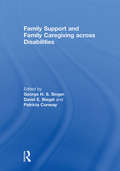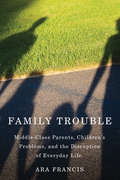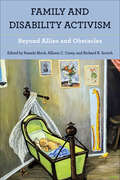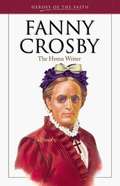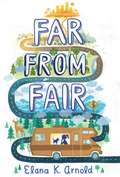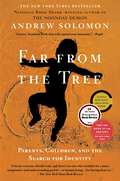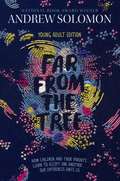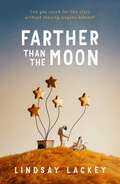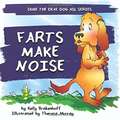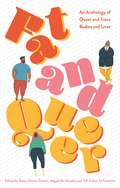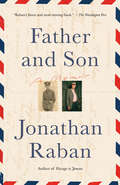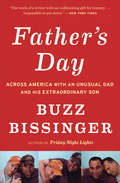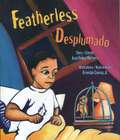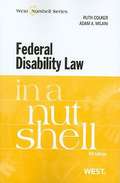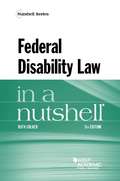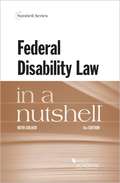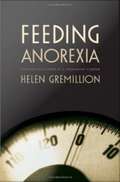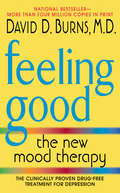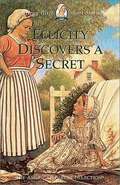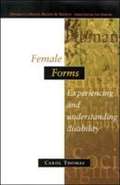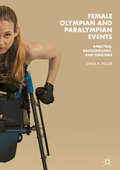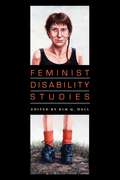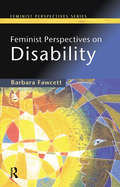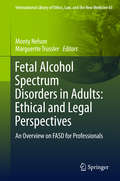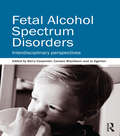- Table View
- List View
Family Support and Family Caregiving across Disabilities
by George H. S. Singer David E. Biegel Patricia ConwayFamily members provide the majority of care for individuals with disabilities in the United States. Recognition is growing that family caregiving deserves and may require societal support, and evidence-based practices have been established for reducing stress associated with caregiving. Despite the substantial research literature on family support that has developed, researchers, advocates and professionals have often worked in separate categorical domains such as family support for caregiving for the frail elderly, for individuals with mental illness, or for people with development disabilities. Family Support and Family Caregiving across Disabilities addresses this significant limitation through cross-categorical and lifespan analyses of family support and family caregiving from the perspectives of theory and conceptual frameworks, empirical research, and frameworks and recommendations for improvements in public policy. The book also examines children with disabilities, children with autism, adults with schizophrenia, and individuals with cancer across the life cycle. This book was published as a two-part special issue in the Journal of Family Social Work.
Family Trouble
by Ara FrancisOur children mean the world to us. They are so central to our hopes and dreams that we will do almost anything to keep them healthy, happy, and safe. What happens, then, when a child has serious problems? In Family Trouble, a compelling portrait of upheaval in family life, sociologist Ara Francis tells the stories of middle-class men and women whose children face significant medical, psychological, and social challenges. Francis interviewed the mothers and fathers of children with such problems as depression, bi-polar disorder, autism, learning disabilities, drug addiction, alcoholism, fetal alcohol syndrome, and cerebral palsy. Children's problems, she finds, profoundly upset the foundations of parents' everyday lives, overturning taken-for-granted expectations, daily routines, and personal relationships. Indeed, these problems initiated a chain of disruption that moved through parents' lives in domino-like fashion, culminating in a crisis characterized by uncertainty, loneliness, guilt, grief, and anxiety. Francis looks at how mothers and fathers often differ in their interpretation of a child's condition, discusses the gendered nature of child rearing, and describes how parents struggle to find effective treatments and to successfully navigate medical and educational bureaucracies. But above all, Family Trouble examines how children's problems disrupt middle-class dreams of the "normal" family. It captures how children's problems "radiate" and spill over into other areas of parents' lives, wreaking havoc even on their identities, leading them to reevaluate deeply held assumptions about their own sense of self and what it means to achieve the good life. Engagingly written, Family Trouble offers insight to professionals and solace to parents. The book offers a clear message to anyone in the throes of family trouble: you are in good company, and you are not as different as you might feel...
Family and Disability Activism: Beyond Allies and Obstacles
by Allison C. Carey Pamela Block Richard K. ScotchIn 2020, Pamela Block, Allison C. Carey, and Richard K. Scotch published Allies and Obstacles, which examined the tensions and connections between disability activism and parents of children with disabilities. In Family and Disability Activism, they continue to examine these issues with a focus on the path-breaking advocacy by marginalized activists with intersectional lived experiences. Family and Disability Activism reveals how families and disabled people who identify as BIPOC and/or LGBTQIA2S+ understand issues of rights versus justice. Contributions by Deaf and disabled activists emphasize the frequent need for either care or independence. Other chapters show how members of the disabled community and their families must navigate systemic issues of segregation, institutionalization, and access to special education services differently depending on their ethnic and racial identities. Expanding the conversation about disability, kinship, biological and chosen families, and activism, this volume amplifies important voices in the fight for disability rights. Contributors: Erin Compton, Diane Compton, Jaclyn Ellis, Laura LeBrun Hatcher, Elena Hung, Bridget Liang, Jenelle Rouse, Cheryl Najarian Souza, Jeneva Stone, Roger A. Stone, Lisette E. Torres, Grace Tsao, and the editors
Fanny Crosby: The Hymn Writer
by Bernard RuffinThis is a biography of Fanny Crosby, a blind prolific hymn writer in the 1800's. Many of her hymns are still sung today. This book is in the Heroes of the Faith Series
Far from Fair
by Elana K. ArnoldOdette Zyskowski has a list: Things That Aren't Fair. At the top of the list is her parents' decision to take the family on the road in an ugly RV they've nicknamed the Coach. There's nothing fair about leaving California and living in the cramped Coach with her parents and exasperating younger brother, sharing one stupid cell phone among the four of them. And there's definitely nothing fair about what they find when they reach Grandma Sissy's house, hundreds of miles later. Most days it seems as if everything in Odette's life is far from fair. Is there a way for her to make things right? With warmth and sensitivity, Elana K. Arnold makes the difficult topics of terminal illness and the right to die accessible to young readers.
Far from the Tree: Parents, Children and the Search for Identity
by Andrew Solomon<P>From the National Book Award-winning author of The Noonday Demon: An Atlas of Depression comes a monumental new work, a decade in the writing, about family. <P>In Far from the Tree, Andrew Solomon tells the stories of parents who not only learn to deal with their exceptional children but also find profound meaning in doing so. Solomon's startling proposition is that diversity is what unites us all. <P>He writes about families coping with deafness, dwarfism, Down syndrome, autism, schizophrenia, multiple severe disabilities, with children who are prodigies, who are conceived in rape, who become criminals, who are transgender. While each of these characteristics is potentially isolating, the experience of difference within families is universal, as are the triumphs of love Solomon documents in every chapter. All parenting turns on a crucial question: to what extent parents should accept their children for who they are, and to what extent they should help them become their best selves. <P>Drawing on forty thousand pages of interview transcripts with more than three hundred families, Solomon mines the eloquence of ordinary people facing extreme challenges. Whether considering prenatal screening for genetic disorders, cochlear implants for the deaf, or gender reassignment surgery for transgender people, Solomon narrates a universal struggle toward compassion. Many families grow closer through caring for a challenging child; most discover supportive communities of others similarly affected; some are inspired to become advocates and activists, celebrating the very conditions they once feared. <P>Woven into their courageous and affirming stories is Solomon's journey to accepting his own identity, which culminated in his midlife decision, influenced by this research, to become a parent. Elegantly reported by a spectacularly original thinker, Far from the Tree explores themes of generosity, acceptance, and tolerance--all rooted in the insight that love can transcend every prejudice. <P>This crucial and revelatory book expands our definition of what it is to be human.
Far from the Tree: Young Adult Edition--How Children and Their Parents Learn to Accept One Another . . . Our Differences Unite Us
by Andrew Solomon Laurie CalkhovenFrom New York Times bestselling author Andrew Solomon comes a stunning, poignant, and affecting young adult edition of his award-winning masterpiece, Far From the Tree, which explores the impact of extreme differences between parents and children.The old adage says that the apple doesn’t fall far from the tree, meaning that children usually resemble their parents. But what happens when the apples fall somewhere else—sometimes a couple of orchards away, sometimes on the other side of the world? In this young adult edition, Andrew Solomon profiles how families accommodate children who have a variety of differences: families of people who are deaf, who are dwarfs, who have Down syndrome, who have autism, who have schizophrenia, who have multiple severe disabilities, who are prodigies, who commit crimes, and more. Elegantly reported by a spectacularly original and compassionate thinker, Far From the Tree explores how people who love each other must struggle to accept each other—a theme in every family’s life. The New York Times calls the adult edition a “wise and beautiful” volume, that “will shake up your preconceptions and leave you in a better place.”
Farther Than the Moon
by Lindsay LackeyFrom award-winning author Lindsay Lackey comes Farther Than the Moon, a heartfelt story about a boy who wants to become an astronaut, but wonders if his dreams can include his brother with disabilities, perfect for fans of We Dream of Space and Song for a Whale.All thirteen-year-old Houston Stewart has ever wanted is to become an astronaut. His dreams feel like they're finally coming true when he's accepted to the highly-competitive Junior Astronaut Recruitment Program – if only he could bring his little brother, Robbie, with him.Ever since their dad left, Houston and Robbie have been inseparable. It's hard to tell where Houston's love of space ends and where Robbie's begins. But Robbie's cerebral palsy and epilepsy mean he needs medical attention at home, so Houston must take this giant leap for the two of them all on his own.At camp, Houston is quickly drawn into the orbit of new friends, cosmic adventures, and a long-lost grandfather. But as Houston struggles to meet the program's rigorous demands, he’s forced to reckon with the truth that Robbie may never be able to visit space like the brothers have always hoped. But Houston is determined to honor Robbie’s dream, even if it seems like an impossible mission. So, like a good astronaut, he dares to make a new plan — one that shoots for the stars.Called "a remarkable and heartfelt story that is as fun and gripping as it is profoundly moving" by #1 New York Times-bestselling author Dan Gemeinhart, this is a captivating read for aspiring astronauts and scientists, and a perfect holiday gift.
Farts Make Noise (Duke The Deaf Dog ASL Series)
by Kelly BrakenhoffDuke the Deaf Dog learns that some noises are loud and some are quiet. Whether it's a tapping crayon, a beeping fire drill, or a crinkly candy wrapper, both parents and children alike will understand the need to know the difference between noises. A fun, engaging way to teach children that some noises are not polite. <P><P><i>Advisory: This book offers only partial accessibility. We have kept it in the collection because it is useful for some of our members. Benetech is actively working on projects to improve accessibility issues such as these in the future.</i>
Fat and Queer: An Anthology of Queer and Trans Bodies and Lives
by Bruce Owens Grimm, Miguel M. Morales and Tiff Joshua TJ FerentiniWe're here. We're queer. We're fat.This one-of-a-kind collection of prose and poetry radically explores the intersection of fat and queer identities, showcasing new, emerging and established queer and trans writers from around the world.Celebrating fat and queer bodies and lives, this book challenges negative and damaging representations of queer and fat bodies and offers readers ways to reclaim their bodies, providing stories of support, inspiration and empowerment.In writing that is intimate, luminous and emotionally raw, this anthology is a testament to the diversity and power of fat queer voices and experiences, and they deserve to be heard.
Father and Son: A Memoir
by Jonathan RabanA NEW YORKER BEST BOOK OF THE YEAR • A poignant memoir of love, trauma, and recovery after a life-changing stroke, twinned to a powerful account of his father's experience in World War II, by a winner of the National Book Critics Circle Award.&“A beautiful, compelling memoir...Raban&’s final work is a gorgeous achievement.&” —Ian McEwan, New York Times best-selling author of Lessons In June 2011, just days before his sixty-ninth birthday, Jonathan Raban was sitting down to dinner with his daughter when he found he couldn&’t move his knife to his plate. Later that night, at the hospital, doctors confirmed what all had suspected: that he had suffered a massive hemorrhagic stroke, paralyzing the right side of his body. Once he became stable, Raban embarked on an extended stay at a rehabilitation center, where he became acquainted with, and struggled to accept, the limitations of his new body—learning again how to walk and climb stairs, attempting to bathe and dress himself, and rethinking how to write and even read.Woven into these pages is an account of a second battle, one that his own father faced in the trenches during World War II. With intimate letters that his parents exchanged at the time, Raban places the budding love of two young people within the tumultuous landscape of the war&’s various fronts, from the munition-strewn beaches of Dunkirk to blood-soaked streets of Anzio. Moving between narratives, his and theirs, Raban artfully explores the human capacity to adapt to trauma, as well as the warmth, strength, and humor that persist despite it. The result is Father and Son, a powerful story of mourning, but also one of resilience.
Father's Day: A Journey into the Mind and Heart of My Extraordinary Son
by Buzz Bissinger&“Every father of a special needs child should read&” this memoir by the #1 New York Times–bestselling author of Friday Night Lights (Temple Grandin). Buzz Bissinger&’s twins were born just three minutes apart, yet life couldn&’t have dealt them more different hands. Now grown, Gerry is a graduate student at Penn, preparing to become a teacher. His twin brother, Zach, has spent his life attending special schools. He&’ll never drive a car, or kiss a girl, or live by himself. He is a savant, challenged by serious intellectual deficits but also blessed with rare talents: an astonishing memory, a dazzling knack for navigation, and a reflexive honesty that can make him both socially awkward and surprisingly wise. Buzz realized that while he&’d been an attentive father, he didn&’t fully understand what it was like to be Zach. So one summer night, the two hit the road to revisit all the places they had lived together in Zach&’s twenty-four years. Zach revels in his memories, and Buzz hopes the experience will bring them closer and reveal to him the mysterious workings of his son&’s mind and heart. The trip becomes a personal journey for Buzz, yielding revelations about his own parents, the price of ambition, and its effect on his twins. As father and son journey from Philadelphia to Los Angeles, they see the best and worst of America—and each other. Ultimately, Buzz gains a new and uplifting wisdom, and with the help of both of his twins, learns a vital lesson: Character transcends intellect.
Featherless / Desplumado
by Juan Felipe HerreraBilingual English/Spanish. Award-winning children's book author and poet Juan Felipe Herrera offers a story of self-empowerment and friendship.Kids race across the grass,swooping like kites over an emerald sea.No one noticeshow fast I can spin my wheels.Will I ever catch up?Will they ever see me? At his new school or on the soccer field, all everyone wants to know is why Tomasito is in a wheelchair. His Papi gives Tomasisto a new pet to make him smile, but this bird is a little bit different from the rest. Before long, this boy-bird team discovers that there's more than one way to fly-on or off the soccer field-and that those cheers Tomasito hears from the sidelines just might be for him. Goooooooooooal! Award-winning children's book author and poet Juan Felipe Herrera scores yet again with this sparkling story of self-empowerment and friendship. The brilliant acrylic paintings by Ernesto Cuevas, Jr., soar off the page with joy.
Federal Disability Law in a Nutshell (4th Edition)
by Ruth Colker Adam A. MilaniThis Nutshell presents an overview of the major federal disability laws with emphasis on the statutes, regulations, and significant points of substantive and procedural law. The fourth edition includes significant focus on the American with Disabilities Act (ADA), including its 2008 Amendment. Features coverage on constitutional rights; the definition of "disabled"; Rehabilitation Act of 1973; employment discrimination; programs and services; and housing, education, and transportation. Also reviews the many relevant areas of the Individuals with Disabilities Education Act (IDEA), including the 2004 Amendments.
Federal Disability Law in a Nutshell (Nutshells)
by Ruth ColkerThis Nutshell presents an overview of the major federal disability laws with emphasis on the statutes, regulations, and significant points of substantive and procedural law. The fifth edition includes significant focus on the Americans with Disabilities Act (ADA), including its 2008 Amendment and accompanying regulations. Features coverage on constitutional rights; the definition of "disabled"; Rehabilitation Act of 1973; employment discrimination; programs and services; and housing, education, and transportation. Also reviews the many relevant areas of the Individuals with Disabilities Education Act (IDEA), including the 2004 Amendments.
Federal Disability Law in a Nutshell (Nutshells)
by Ruth ColkerThis Nutshell presents an overview of the major federal disability laws with emphasis on the statutes, regulations, and significant points of substantive and procedural law. The fifth edition includes significant focus on the Americans with Disabilities Act (ADA), including its 2008 Amendment and accompanying regulations. Features coverage on constitutional rights; the definition of "disabled"; Rehabilitation Act of 1973; employment discrimination; programs and services; and housing, education, and transportation. Also reviews the many relevant areas of the Individuals with Disabilities Education Act (IDEA), including the 2004 Amendments.
Feeding Aorexia: Gender and Power at a Treatment Center
by Helen GremillionFeeding Anorexia challenges prevailing assumptions regarding the notorious difficulty of curing anorexia nervosa. Through a vivid chronicle of treatments at a state-of-the-art hospital program, Helen Gremillion reveals how the therapies participate unwittingly in culturally dominant ideals of gender, individualism, physical fitness, and family life that have contributed to the dramatic increase in the incidence of anorexia in the United States since the 1970s. She describes how strategies including the meticulous measurement of patients' progress in terms of body weight and calories consumed ultimately feed the problem, not only reinforcing ideas about the regulation of women's bodies, but also fostering in many girls and women greater expertise in the formidable constellation of skills anorexia requires. At the same time, Gremillion shows how contradictions and struggles in treatment can help open up spaces for change. Feeding Anorexia is based on fourteen months of ethnographic research in a small inpatient unit located in a major teaching and research hospital in the western United States. Gremillion attended group, family, and individual therapy sessions and medical staff meetings; ate meals with patients; and took part in outings and recreational activities. She also conducted over one hundred interviews-with patients, parents, staff, and clinicians. Among the issues she explores are the relationship between calorie-counting and the management of consumer desire; why the "typical" anorexic patient is middle-class and white; the extent to which power differentials among clinicians, staff, and patients model "anorexic families"; and the potential of narrative therapy to constructively reframe some of the problematic assumptions underlying more mainstream treatments.
Feeling Good: The New Mood Therapy
by David BurnsRid yourself of anxiety, guilt, pessimism, procrastination, low self-esteem and other "black holes" of depression without drugs.
Felicity Discovers A Secret (American Girls Short Stories #19)
by Valerie TrippIn Felicity Discovers a Secret, Felicity's hoop gets her into trouble. Now Felicity must spend a day with Mrs. Burnie, the crabbiest woman in town. Felicity can't seem to do anything right under Mrs. Burnie's watchful eye. But then she discovers Mrs. Burnie's secret...
Female Forms: Experiencing and Understanding Disability
by Carol Thomas* What is the relevance of feminist ideas for understanding women's experiences of disability? * How can the social model of disability be developed theoretically? * What are the key differences between Disability Studies and medical sociology? In answer to these questions, this book explores and develops ideas about disability, engaging with important debates in disability studies about what disability is and how to theorize it. It also examines the interface between disability studies, women's studies and medical sociology, and offers an accessible review of contemporary debates and theoretical approaches. The title Female Forms reflects two things about the book: first, its use of disabled women's experiences, as told by themselves, to bring a number of themes to life, and second, the author's belief in the importance of feminist ideas and debates for disability studies. The social model of disability is the book's bedrock, but the author both challenges and contributes to social modelist thought. She advances a materialist feminist perspective on disability, producing a book which is of multi-disciplinary relevance. Female Forms will be useful to the growing number of students on Disability Studies courses, as well as those interested in women's studies, medical sociology and social policy. It will also appeal to those studying or working in the health and social care professions such as nursing, social work, occupational therapy and physiotherapy.
Female Olympian and Paralympian Events: Analyses, Backgrounds, and Timelines
by Linda K. FullerFemale Olympian and Paralympian Events is a groundbreaking book that examines women’s sports in the Olympic and Paralympic Games, which have long been underappreciated and under-analyzed. The book begins with a brief background on women’s participation in the Olympic Games and their role relative to the International Olympic Committee, then introduces the underlying Gendered Critical Discourse Analysis theory used throughout the book’s analysis before delving into a literature review of female Olympians and Paralympians’ events. It includes a listing of noteworthy “firsts” in the field, followed by individual discussions of twenty-eight Summer and seven Winter events, analyzed according to their historical, rhetorical, and popular cultural representations. Women’s unique role(s) in the various events are discussed, particular athletes and Paralympic events are highlighted, and original tables are also included. At the end of each section, affiliated organizations and resources are included in this invaluable referential volume.
Feminist Disability Studies
by Kim HallDisability, like questions of race, gender, and class, is one of the most provocative topics among theorists and philosophers today. This volume, situated at the intersection of feminist theory and disability studies, addresses questions about the nature of embodiment, the meaning of disability, the impact of public policy on those who have been labeled disabled, and how we define the norms of mental and physical ability. The essays here bridge the gap between theory and activism by illuminating structures of power and showing how historical and cultural perceptions of the human body have been informed by and contributed to the oppression of women and disabled people.
Feminist Perspectives on Disability (Feminist Perspectives)
by Barbara FawcettFeminist Perspectives on Disability provides a unique introduction to the key debates in relation to both feminism and disability. The author considers contemporary similarities, differences and contentious areas and how concepts drawn from postmodern feminism can be usefully applied to the disability arena. The book explores many important aspects of the field, including: biological debates; issues of power, knowledge, equality, difference, subjectivity and the body; interface of public and private/care and community; medical and social barriers; politics, citizenship and identity.Feminist Perspectives on Disability will be compulsory reading for students of all levels in Women's Studies, Gender Relations, Social Policy, Social Work/Social Care and social Science.
Fetal Alcohol Spectrum Disorders in Adults: Ethical and Legal Perspectives
by Monty Nelson Marguerite TrusslerThis book discusses and provides insight on the legal and ethical dilemmas of managing those with Fetal Alcohol Spectrum Disorder (FASD). This book provides a clear perspective for those clinicians and legal professionals who are working with those with this disorder, and correspondingly increases their understanding when arranging effective supports for this population. Historically, the primary focus on FASD has been on children. However, this is a lifelong disorder and the implications of this disorder become even more prominent and complex in adulthood. Those with this condition can struggle with impulsiveness, and a host of cognitive difficulties. This correspondingly impacts their independence and employability, and produces an elevated risk for homelessness and other residential issues, involvement in substance use, being exploited, development of behavioural issues, and subsequent legal difficulties. Their cognitive difficulties result in challenges for legal systems around the world to understand their issues, and to design appropriate remedial strategies, recommendations for treatments and supports, and even for understanding the failure of many of these individuals to be able to change their behaviours effectively. This produces various legal and ethical dilemmas, which are discussed in detail in this volume by 28 authors from Europe, New Zealand and North America. These include discussions regarding the rights of the unborn child, the alcohol industry's duty to warn, whether small amounts of alcohol during pregnancy can be condoned, and even the current use of involuntary hospitalization for addicted mothers. Other chapters discuss the need for training on FASD for front line officers, use of lies during interrogation of those with FASD, medical and legal interventions for offenders with FASD, access to diagnostic services and follow-up supports, and whether FASD can be considered a mitigating factor for sentencing. Furthermore, caregivers also provide their stories regarding the daily dilemmas that are faced in raising those with FASD.
Fetal Alcohol Spectrum Disorders: Interdisciplinary perspectives
by Barry Carpenter Jo Egerton Carolyn BlackburnFetal alcohol spectrum disorders (FASDs) have emerged as a major phenomenon within the education, health, criminal justice and social care systems of many countries, with current prevalence figures suggesting that one in a hundred children and young people have FASDs. In this publication, academics, professionals and families from around the world have shared expertise and insights on FASDs. Their combined interdisciplinary perspective makes an invaluable contribution to how we understand and address the complex social, educational and health needs associated with this growing group of children and young people. Articulating fundamental knowledge, cutting edge initiatives and emerging trends in FASDs, this book provides an evidence base that will enable services to identify and respond to the need for action on FASDs. It recognises that families – natural, foster or adoptive – are at the heart of this process, and that their rich knowledge base, grounded in their lived experience, is crucial. Any education, social care, criminal justice or health professional working with children and young people with FASDs and their families will find this book a seminal and authoritative resource.
